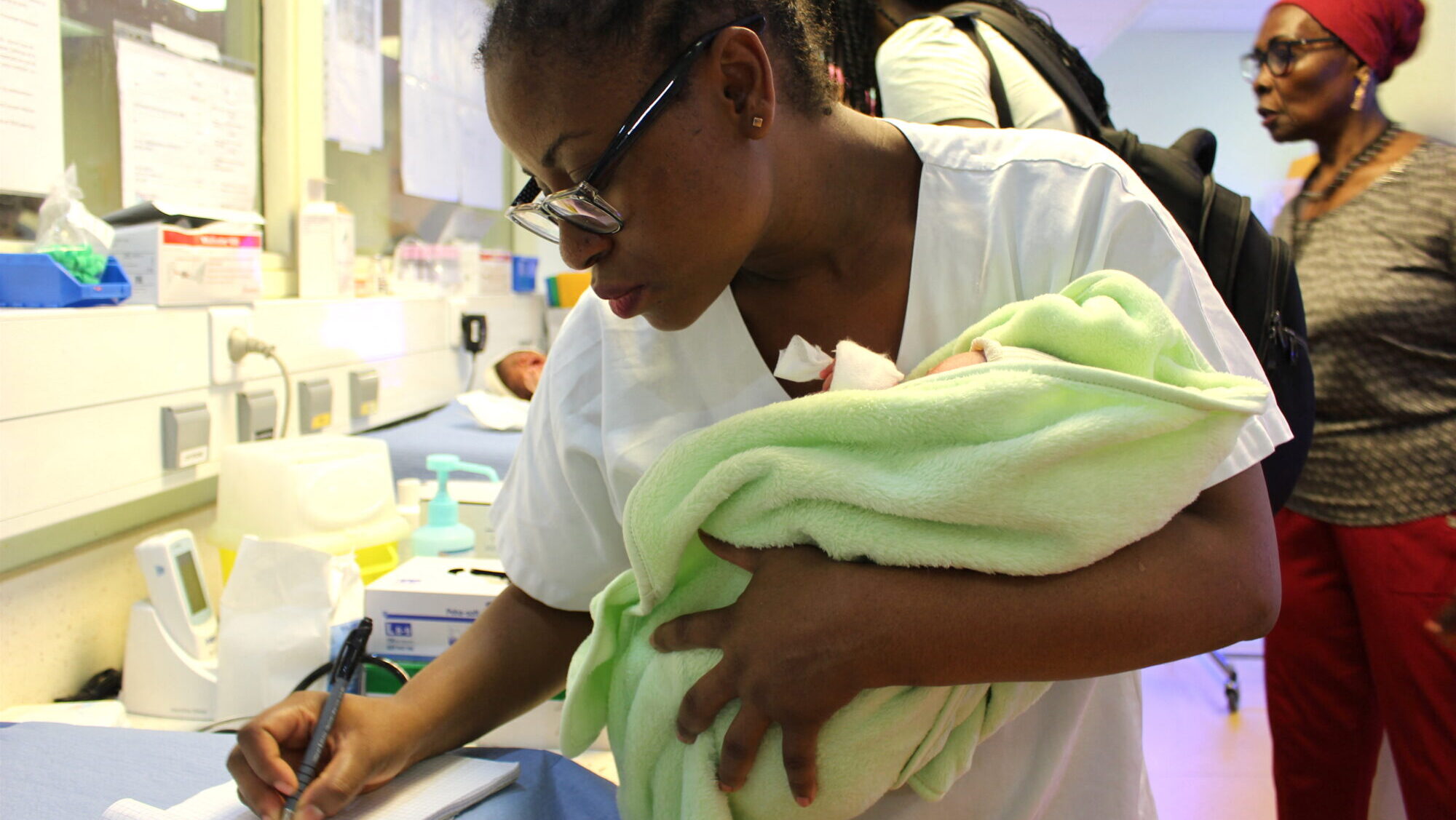
A nurse writes on a notepad as she cares for a newborn baby in the maternity ward of the Mayotte Maternity Hospital in Mamoudzou on March 14, 2018. Pregnant women arrive in Mayotte by boat from nearby islands to give birth on French soil, as a way of obtaining French and EU citizenship for their child. Around 70 percent of the 10,000 babies born every year in the maternity hospital in Mamoudzou are born to illegal migrants.
Photo: Ornella LAMBERTI / AFP
Members of the French National Assembly are considering changes to birthright citizenship (jus soli) and the process of obtaining French nationality on the island of Mayotte. The island is under considerable pressure from high immigration, necessitating restrictive measures in relation to French law, which is very generous when it comes to granting nationality. The national Right wants to make the island of Mayotte a testing ground for broader legislative reforms in mainland France.
Mayotte, a French possession in the Indian Ocean belonging to the Comoros archipelago, has been swamped by waves of mass migration for decades. The reason for this is the French ‘droit du sol’, which means that French nationality is given almost automatically to anyone born on French soil. As a result, many mothers from Comoros come to Mayotte to give birth so that their child can have French nationality, making the maternity hospital in Mamoudzou, the capital of Mayotte, the leading maternity hospital in France in terms of births. In addition, there are thousands of illegal births on the island, which are not always recorded. Mayotte’s GDP per capita is ten times higher than that of the poorest of the neighbouring Comoros islands, which is the main source of these migrant contingents.
There is one solution that would put the brakes on these uncontrolled arrivals: abolishing the droit du sol on the island of Mayotte. The Rassemblement National (RN) has for many years supported this measure, and many of the island’s inhabitants have also called it. Emmanuel Macron’s party has finally been convinced of the need to act.
Temporary experiments have already been taking place since 2019 on the initiative of former interior minister Gérald Darmanin to toughen the droit du sol in Mayotte compared with what is practised in metropolitan France—for example by extending the length of time parents need to be resident on French soil—but they remain largely insufficient. The critical state of the island since the passage of cyclone Chido has brought the initiative back to the forefront. Now, from the centre to the right, there is a consensus on the need to limit the right to residency in Mayotte.
Limiting it, but to what extent?
On Thursday 6 February, the National Assembly examined a bill proposed on the initiative of the Les Républicains (LR) party and “aimed at strengthening the conditions of access to French nationality in Mayotte.” “The aim is to limit the attractiveness of French nationality as much as possible,” explained the bill’s rapporteur Philippe Gosselin at a press conference on Tuesday 4 February.
The bill completes and toughens the changes already made in 2019, by requiring both parents (rather than just one) to reside in France for one year (rather than three months) before their child can be granted nationality. The independent MP for Mayotte, Estelle Youssouffa, who is in favour of the bill championed by the LR MPs, points out that Mayotte has always been in favour of abolishing the island’s droit du sol, and condemns the misuse made of it by migrants. The Socialists vigorously oppose this toughening of the law for Mayotte, and believe that the measure manifests “a colonial approach to French nationality.”
MPs from the Rassemblement National (RN) and their allies from the Union des Droites pour la République (UDR) wanted to supplement the law with an article providing for the outright abolition of droit du sol in Mayotte, but the article could not be adopted due to the abstention of LR MPs. “With their vote, the text could largely have been approved. When it comes to immigration, the Republicans talk like the RN but act like the PS,” said Alexandre Loubet, MP and vice-chairman of the RN parliamentary group, on X.
🚨 Les députés LR viennent de s’abstenir lors du vote visant à supprimer le droit du sol à Mayotte. Avec leur vote, le texte aurait largement pu être approuvé.
— Alexandre Loubet (@AlexandreLoubet) February 6, 2025
En matière d’immigration, les Républicains parlent comme le RN mais agissent comme le PS.#DirectAN pic.twitter.com/3WiUsOX68V
But for the Right as a whole, despite the differences, the objective remains the same: to extend the provisions tested in Mayotte to the whole of France. “In our minds, obviously, the aim is for Mayotte to be the first stage and then, for us, the idea is to extend these restrictions to the rest of France,” said Laurent Wauquiez, leader of the LR group in the National Assembly, on Tuesday.
The text presented by Les Républicains is expected to win a majority in the National Assembly.
